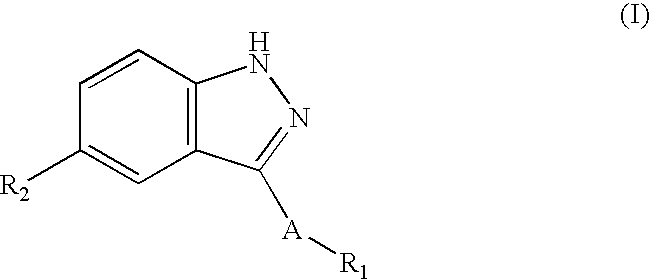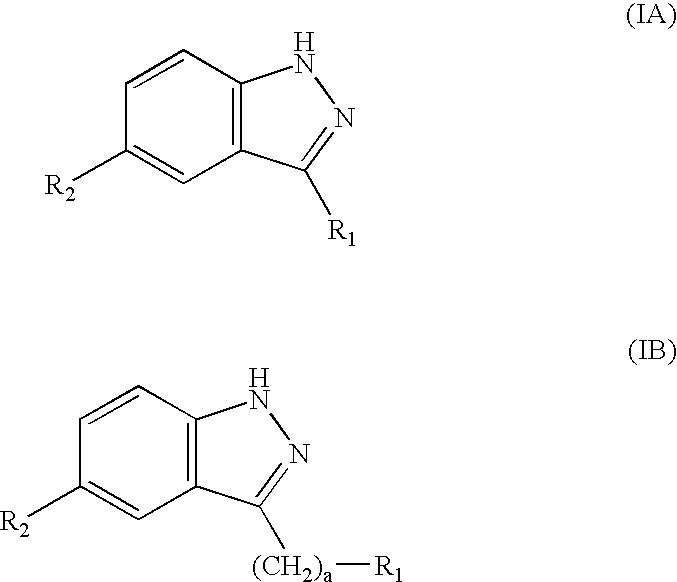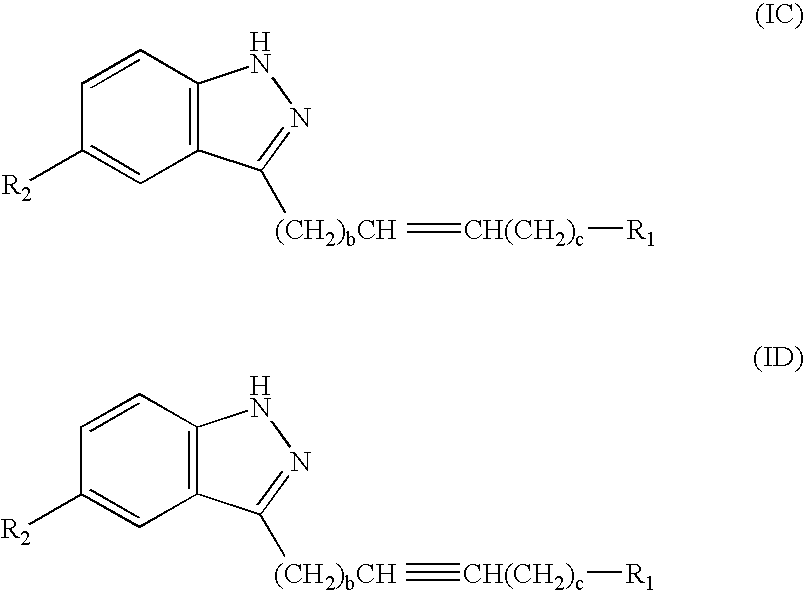Methods and compositions using JNK inhibitors for treatment and management of central nervous system injury
a technology of central nervous system injury and inhibitor, which is applied in the field of treating, preventing and/or managing central nervous system injury/damage and related syndromes, can solve the problems of increased risk of infection, most injuries, and increased risk of infection for either ventriculitis or meningitis, so as to prolong the time of remission of symptoms, inhibit jnk activity and tnf- production
- Summary
- Abstract
- Description
- Claims
- Application Information
AI Technical Summary
Benefits of technology
Problems solved by technology
Method used
Image
Examples
first embodiment
[0030] the invention encompasses methods of treating or preventing CNS injury / damage and related syndromes, which comprise administering to a patient in need of such treatment or prevention a therapeutically or prophylactically effective amount of a JNK inhibitor, or a pharmaceutically acceptable salt, solvate, hydrate, stereoisomer, clathrate, or prodrug thereof. CNS injury / damage and related syndromes, include, but are not limited to, primary brain injury, secondary brain injury, traumatic brain injury, focal brain injury, diffuse axonal injury, head injury, concussion, post-concussion syndrome, cerebral contusion and laceration, subdural hematoma, epidermal hematoma, post-traumatic epilepsy, chronic vegetative state, complete SCI, incomplete SCI, acute SCI, subacute SCI, chronic SCI, central cord syndrome, Brown-Sequard syndrome, anterior cord syndrome, conus medullaris syndrome, cauda equina syndrome, neurogenic shock, spinal shock, altered level of consciousness, headache, naus...
PUM
| Property | Measurement | Unit |
|---|---|---|
| weight percent | aaaaa | aaaaa |
| weight percent | aaaaa | aaaaa |
| weight percent | aaaaa | aaaaa |
Abstract
Description
Claims
Application Information
 Login to View More
Login to View More - R&D
- Intellectual Property
- Life Sciences
- Materials
- Tech Scout
- Unparalleled Data Quality
- Higher Quality Content
- 60% Fewer Hallucinations
Browse by: Latest US Patents, China's latest patents, Technical Efficacy Thesaurus, Application Domain, Technology Topic, Popular Technical Reports.
© 2025 PatSnap. All rights reserved.Legal|Privacy policy|Modern Slavery Act Transparency Statement|Sitemap|About US| Contact US: help@patsnap.com



